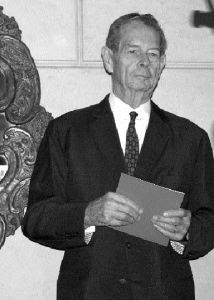According to the critical analysis by Reuters Agency, the outcome of the fight against corruption is at a standstill because of hesitating politicians, political confrontations and inefficient public administration.
The Reuters analysis is an ample account of the progress Romania and Bulgaria made after joining the EU in terms of commitments assigned before the accession. The report, 75% of it on Romania, includes severe conclusions.
Failed reforms
6 months after joining the EU, Romania and Bulgaria failed to prove credible progress with the fight against corruption and organized crime, despite the enlarged legislative reforms. The report mentions Brussels officials are concerned about it and some EU states say the two poor Balkan countries joined the EU too early. Both Romania and Bulgaria are under monitoring and they may be sanctioned after the European Commission releases report in June 27 and decide the two newcomers can't meet requirements on the fight against abuse.
Both states reformed the juridical system and passed laws establishing institutions to fight against corruption, in keeping with the EU demands. Still many foreign observers claim the outcome of it is at a standstill because of hesitating politicians, political confrontations and inefficient public administration. The diplomat of an EU state in Bucharest is claimed to have commented that he could never see the proof of results or the impact on society, although there should be evidence to show authorities' intention to fight corruption at all levels.
According to foreign observers, fraud is so deeply rooted in Romania and Bulgaria that very many local politicians don't want to implement efficient reforms. Judicial system members are often very close to criminal groups and the new laws lack mechanisms of application. And the disputes among the governing parties are one more problem, although both the Romanian and Bulgarian governments see their populations decreasing. There is estimated that reforms ceased completely the moment when the two states got EU membership.
As far as Romania is concerned, the ex Justice minister Monica Macovei is perceived as author of a complete renewal of the juridical system and there is mentioned that last April she was sacked as minister because of political arguments. Commentators opine that the present Justice minister, Tudor Chiuariu, is inefficient. Sorin Ionita, a member of the Romanian Academic Society, comments that what Romania's new Justice minister wants isn't clear yet. He adds the minister seems to be after setting limits to prosecutors' attributions.
The trial against Adrian Nastase makes no progress
Another example used is the trial against Romania's ex PM Adrian Nastase, at a standstill for several months now because of a Constitutional Court dispute. The trial is seen as a test for the ability of the reformed Justice system to handle high level fraud cases. (...)
Bucharest still needs an efficient agency to monitor politicians' personal properties, an institution Brussels officials believe to be crucial for the elimination of abuses. The report mentions that the Romanian Parliament initially restrained this institution's power and the MPs are now to pass an improved version on the respective law draft. According to Transparency International, Romania is the most corrupted EU state because of failing public policies used to fight and prevent corruption in public administration. (...)
George Damian
Ziua Sambata 23 Iunie 2007 http://www.ziua.net/english
Saturday, June 23, 2007
Aidan White: Romanian press lacks credibility
Aidan White, a general secretary of the International Federation of Journalists, opined in yesterday's press conference in Bucharest that Romanian press was losing its credibility. He claimed there was an unhappy connection between politics and the media, which was harming the independence and ethics of journalists. He argued that more and more journalists were part of the corruption effecting on the media. The IFJ official underscored one didn't have the right to ask for changes unless one was changing. He outlined the word "corruption" was too often used in Europe to describe Romania and Bulgaria and opined that trust in the mass media could be regained by efforts. As for Romania, he claimed there are too many politicians pursuing business interests in the media.
As for the President of Romania Traian Basescu, the IFJ official described his speech as fully inadequate and permeated with clues against journalists' right to get information and ask questions. Cristian Godinac, president of the MediaSind, argued in his turn that the President's offenses against the political class and his verbal violence against journalists were a perilous precedent and he described it as scandalous that journalists should become a laughing stock for politicians. (...)
T.B.
Ziua Vineri 22 Iunie 2007 http://www.ziua.net/english
As for the President of Romania Traian Basescu, the IFJ official described his speech as fully inadequate and permeated with clues against journalists' right to get information and ask questions. Cristian Godinac, president of the MediaSind, argued in his turn that the President's offenses against the political class and his verbal violence against journalists were a perilous precedent and he described it as scandalous that journalists should become a laughing stock for politicians. (...)
T.B.
Ziua Vineri 22 Iunie 2007 http://www.ziua.net/english
The King and the Country. The Republic and Moscow

The National Institute for the Memory of Romanian Exile, the only governmental institution under the auspices of his Majesty King Mihai I, arranged a reunion to celebrate 80 years since His Majesty had been crowned. The reunion took place last Wednesday, June 20, in the Cantacuzino Palace-The Enescu Museum in Bucharest. The attendance of King Mihai and Queen Ana crowned a graceful evening.
Mrs. Marilena Rotaru, author of the event, and Mr. Dinu Zamfirescu, a president of the above-mentioned, were hosts. They reminded that Romania hadn't actually ceased to be a constitutional monarchy, even if Moscow had ordered a republic onto it. After 60 years, the Trison Group, a children's chorus from Chishinau directed by Stefan Caranfil, sings wonderfully. Their Romanian is unbelievably beautiful. They sing "Romanian, My Country" in Bucharest, Iasi, Moscow, Kiev, Paris, Berlin. The children of Basarabia sang it and the Royal Hymn to the King of our dismembered country.
Some will give superior smiles or snarls and claim that those present at the encounter with the country's history that is still alive prove suffer from nostalgia or from unachievable aspirations. But it is those who think Romania has been in an illegal state since December 30, 1947 who delude themselves. The illusion that such illegal state can go on forever will be shattered, even if the self-delusive ones make a majority, because of lying propaganda. In 1990 we commented that the Communists who had betrayed the country had fetched republic to Romania by Soviet cannons, but without providing such an illegal deed with legal grounds. Of course they didn't care about the law, as they knew things were already settled so that Moscow would reign over Romania instead of the King. It is just that they failed to impose an illegitimate rule by legal, that is legislative, means. They broke the Constitution and the other Romanian laws to pieces.
The Abdication of His Majesty King Mihai I has never been made legal in Romania. After King Mihai had been forced into abdicating, in order to save the lives of over 1,000 young people arrested for blackmail, the National Assembly members got together. But the Parliament had no quorum. And even if there had been a quorum, after the abdication had been adopted they were to settle Regency, because of the Constitution. A republic could not be proclaimed via a monarchist Constitution. A new Constitution, a republican one, would have had to be adopted to this end, and people would have had to agree or nor by means of a referendum. No such legislative measure was taken. The servants of Moscow disregarded people's choice for monarchy and defied the Church. King Mihai I was anointed a King, which is clear even to Gigi Becali.
Romania's reaffirmation as a constitutional monarchy must be the major bet of the Tariceanu government, a thing that should have been done in December 22, 1989. Iliescu and Moscow's reactivated servants were actually the ones who had plotted the whole bloodshed masquerade so that the true Romania would stay in exile. And now, after 17 years, the Constitutional Court is making 0 out of the court cases on the 1989 Revolution and the 1990 coal miners' attacks. The owners: Iliescu&Basescu.
But we are lucky that the illegal republic coming from Moscow can be overthrown by the most fervent supporters of President Traian Basescu, with Gabriel Liiceanu top of the list. He has announced he is working on a project for a new Constitution. A monarchist one, naturally. Mind you what Mr. Liiceanu's is uttering in his wonderful voice in the film of his friend Sorin Iliesiu: Monarchy Saves Romania.
Roxana Iordache
Ziua Vineri 22 Iunie 2007 http://www.ziua.net/english
Subscribe to:
Comments (Atom)





.jpg)

















